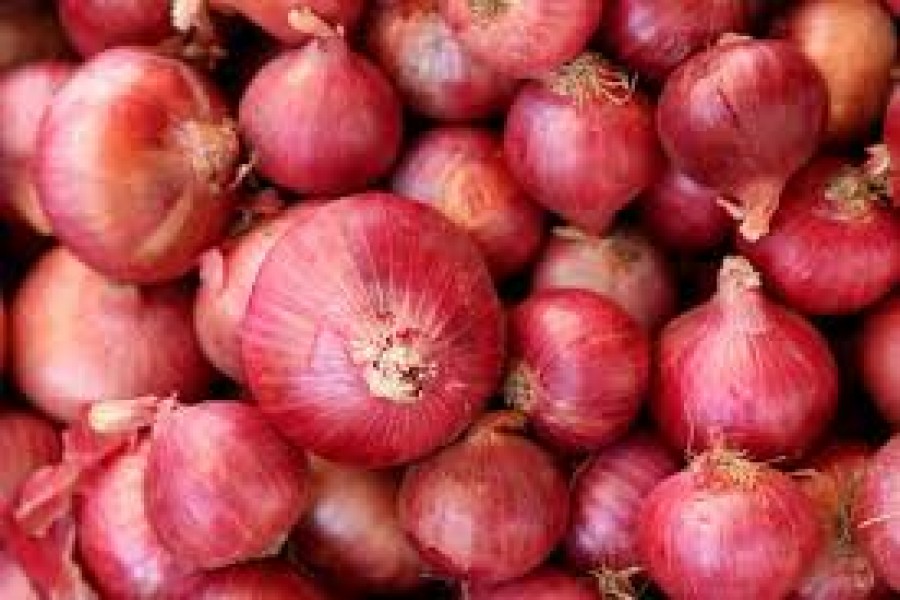The kitchen staple, onion, has again taken the centre stage. As its price doubled at the India's, or rather Asia's largest wholesale market for onion at Lasalgaon in the Nasik district of Maharashtra state, the central government in Delhi did not wait too long to arrest its further rise. Perhaps, not to create a cause for consumer's resentment, particularly when the Bihar Legislative Assembly elections are around the corner, the central government on September 14 imposed a ban on the export of this essential commodity.
However, the kitchen market item's wholesale price has been appreciating over the last few months since March, though the retail price of onion increased by 40 to 50 per cent from Rs 25-30 per kg three months back.
It was the untimely downpour in August that damaged mature onion crops in the fields of Karnataka as well as the stocked up onions in other major onion producing states including Madhya Pradesh, Gujarat and some parts of Maharashtra. But despite damage caused by the rain or by the humid weather, the supply shortage-induced price hike of the agricultural produce was a boon for farmers. When they were just cashing in on the price hike of onion, the export ban came. The farmers are certainly not happy about the ban which is meant to bring down the essential's price.
The All India Kisan Sava (AIKS), the peasants' platform of the Communist Party of India (CPI), opposition leaders including the Nationalist Congress Party (NCP) were critical of the ban. The NCP leader Sharad Pawar even brought the issue of India's image before its close neighbours, Bangladesh and Sri Lanka, in consequence of the export ban. Diplomatic fallout of the ban apart, a Maharashtra government minister referring to the loss the ban would cause to the farmers said, they would stand beside the farmers.
The Bangladeshi consumers, on the other hand, started panic buying of onion after India's announcement of the ban. That was triggered by their bitter experience of skyrocketing price of the item late September last year when India slapped a similar ban on its onion export.
In fact, the government in Delhi is somewhat uneasy about any market volatility when it comes to the price of essential commodities. And when it is onion, it is enough for the Delhi government to act fast lest its price should hit the Rs 30 threshold.
The reason for this unease about this vegetable's price, however, lies in its historical role as a powerful actor in even changing governments as it happened in 1998 in the cases of state governments in Delhi and Rajasthan, or in 1980 when the Indira Gandhi-led Congress swept to power exploiting the issue of high onion price.
And like in the past, the export ban on onion has come to the dismay of the people of Bangladesh as about 75 per cent of the country's imported onion come from India.
The unprecedented onion price shock of last year forced Bangladesh to look for alternative sources of this commodity from Myanmar and Vietnam to faraway Turkey and Egypt. Even India's arch rival, Pakistan, with whom Bangladesh's diplomatic relation was rather frosty for long, proved to be a source of this vital ingredient of the South Asian dishes.
This time the government is not going to take any chances.
As soon as the market started to show signs of flightiness, it assured consumers of a good stock position of onion. At the same time, steps have been taken to import the bulb from at least seven onion exporting countries.
From the sideline, the lesser staple has thus shot to prominence as it has the power to even alter regional diplomatic status quo.


